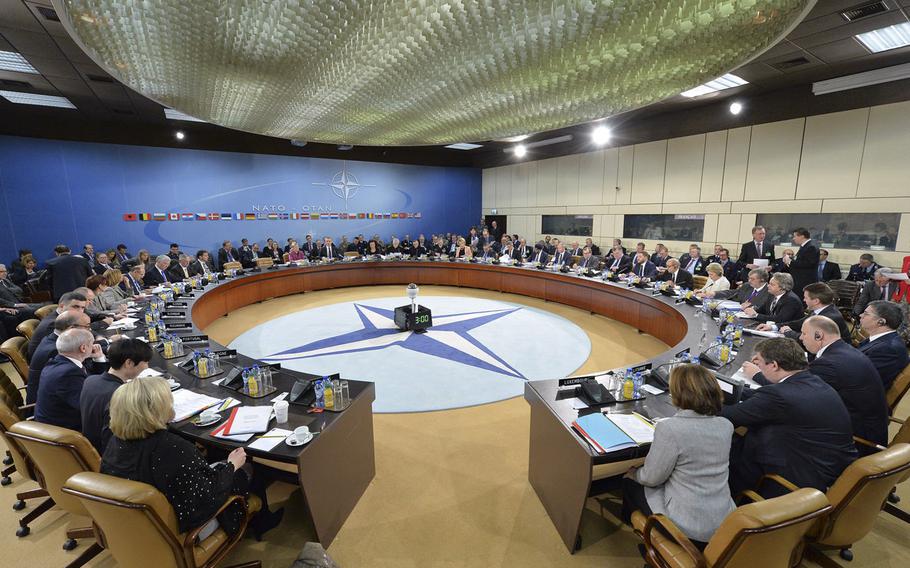
General view of the meeting of the NATO defense ministers at the alliance's headquarters in Brussels on Thursday, Feb. 16, 2017. (Photo courtesy of NATO)
BRUSSELS — NATO’s top diplomats endorsed a plan Wednesday to join the U.S.-led coalition against the Islamic State, signaling the transatlantic military alliance is poised to wade into the battle in Iraq and Syria.
President Donald Trump and other NATO heads of state still must formally approve the plan when they meet Thursday at alliance headquarters in Brussels, according to a NATO source who spoke on the condition of anonymity.
Still, the approval from NATO’s ambassadors, who are emissaries for respective heads of state, likely makes the deal a virtual forgone conclusion.
The formal entry of NATO into the coalition would be a political victory for Trump, who has emphasized the alliance should take on a more prominent role in countering terrorism.
It is still unclear what NATO’s function will be in the coalition, but the move serves as a turning point for the alliance. NATO also is expected to act on another Trump demand that members craft concrete plans for reaching alliance defense spending benchmarks.
Trump has made counterterrorism and defense spending his top priority in connection with NATO and the alliance has put those issues at the top of its agenda in response.
NATO’s Secretary-General Jens Stoltenberg said Wednesday that allies can do more in support of the global coalition against ISIS, though he said a combat role wasn’t what was under consideration.
“There has been no request for any NATO combat role and there is no discussion at all about engaging NATO in a combat role in the counter-[ISIS] coalition,” Stoltenberg told reporters.
Instead, he said he expected allies to agree to a more robust surveillance campaign. NATO also could ramp up its training program in Iraq. Stoltenberg’s comments came before ambassadors approved joining the coalition, which he said was under discussion.
Stoltenberg said NATO has drawn lessons from past conflicts, including Libya, where allies helped overthrow a dictator but failed to help stabilize the country in what has been a violent aftermath. He indicated NATO’s role could be helping to avoid such a scenario when combat operations against ISIS in Iraq are done.
“So what I think we have learned from Iraq, from Afghanistan, from Libya and many other countries, is that one thing is the military combat operation, but perhaps more demanding in the long run is to stabilize after the combat operations have ended,” Stoltenberg said. “That is what NATO is focusing on when we now are engaged in training, assisting and capacity building in Afghanistan, but also focus on that in, for instance, Iraq.”
vandiver.john@stripes.com Twitter: @john_vandiver